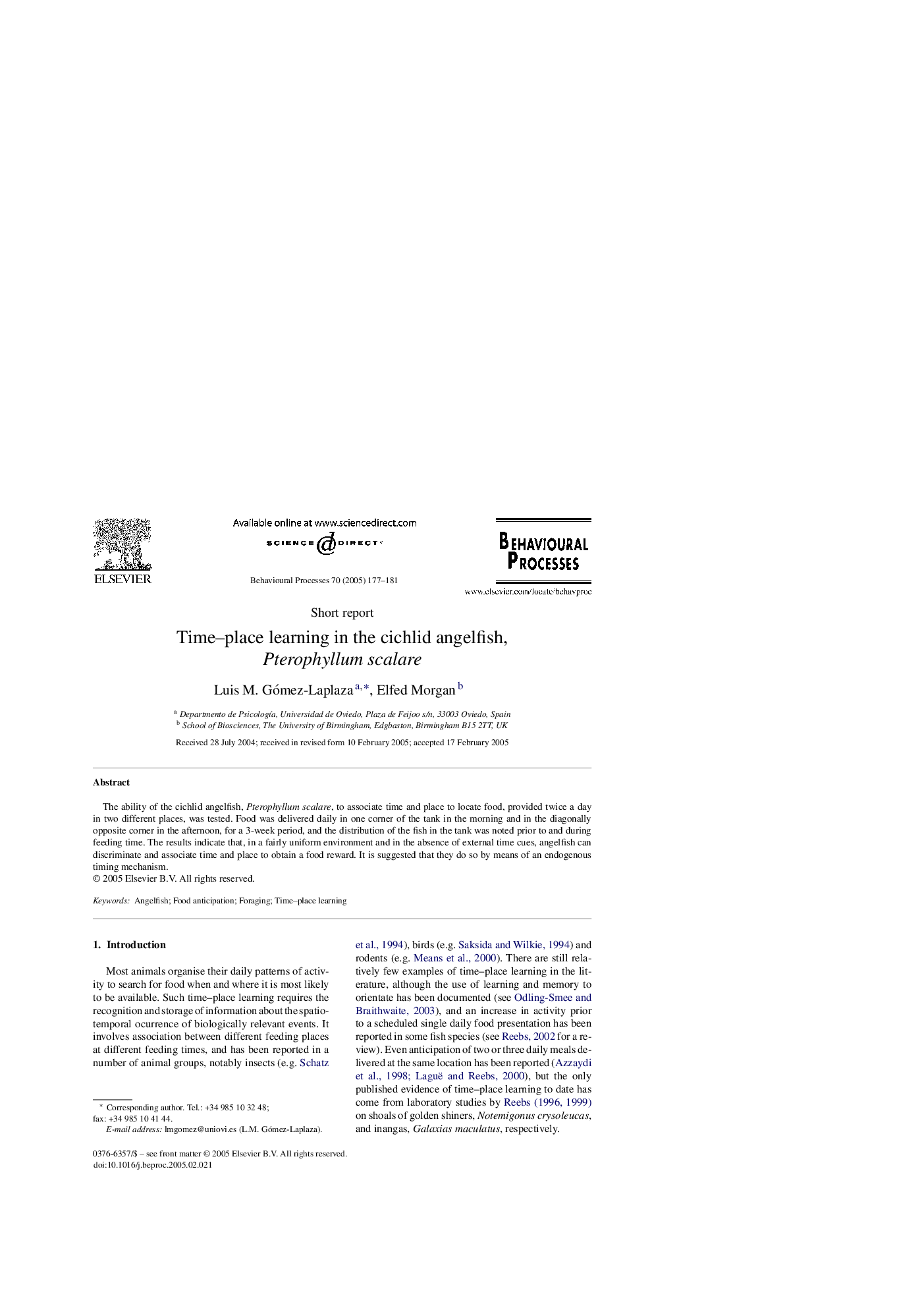| Article ID | Journal | Published Year | Pages | File Type |
|---|---|---|---|---|
| 8977375 | Behavioural Processes | 2005 | 5 Pages |
Abstract
The ability of the cichlid angelfish, Pterophyllum scalare, to associate time and place to locate food, provided twice a day in two different places, was tested. Food was delivered daily in one corner of the tank in the morning and in the diagonally opposite corner in the afternoon, for a 3-week period, and the distribution of the fish in the tank was noted prior to and during feeding time. The results indicate that, in a fairly uniform environment and in the absence of external time cues, angelfish can discriminate and associate time and place to obtain a food reward. It is suggested that they do so by means of an endogenous timing mechanism.
Related Topics
Life Sciences
Agricultural and Biological Sciences
Animal Science and Zoology
Authors
Luis M. Gómez-Laplaza, Elfed Morgan,
